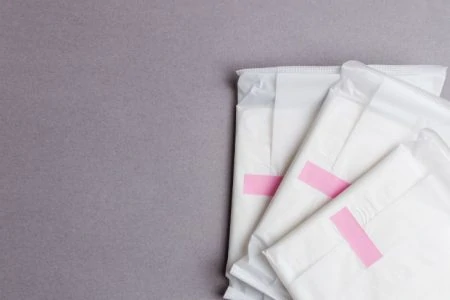Cloudy urine during pregnancy is actually a frequent complaint among moms-to-be. While it can be alarming to look down and see a change in the toilet bowl, the causes are often benign.
We dove into the medical research to separate the harmless symptoms from the red flags. Here is what you need to know about cloudy pee and when it is time to call your OB.
Key Takeaways
- It is common: Cloudy urine is a frequent occurrence during pregnancy and is often harmless.
- Benign causes: Hormonal changes, vaginal discharge, diet, and mild dehydration are top culprits.
- Medical concerns: Infections like UTIs or conditions like preeclampsia can also cause cloudiness.
- When to act: If you experience pain, fever, or swelling alongside cloudy urine, contact your provider immediately.
Is Cloudy Urine in Pregnancy Common?
You are not alone in your worries. Cloudy urine is a widespread issue for pregnant women. Since your body is undergoing massive chemical and physical changes, your waste products change too.
Most women will experience changes in urine color or consistency at some point during the 40 weeks of pregnancy. While it is usually nothing to panic about, it is always smart to pay attention to what your body is telling you.
Causes of Cloudy Urine During Pregnancy
Most causes of cloudy urine are annoying but harmless. However, a few specific scenarios warrant a trip to the doctor. It is okay to take a moment to assess your symptoms at home, but if you notice pain or other warning signs, loop your doctor in immediately.
Here is a breakdown of what might be causing the cloudiness.
Pregnancy Hormones
When you first suspected you were pregnant, you likely peed on a pregnancy test to measure Human Chorionic Gonadotropin (hCG). This hormone spikes rapidly in the first trimester.
The Most Likely Cause
If you see cloudy urine early in your pregnancy, mention it at your next prenatal appointment. It is likely just your body adjusting to its new normal.
Increased Vaginal Discharge
This is one of the most common, yet overlooked, causes. During pregnancy, your body produces more vaginal discharge, known as leukorrhea. This milky, mild-smelling mucus protects the birth canal from infection.
When you urinate, some of this discharge often mixes with the stream or falls into the toilet bowl. This naturally makes the water look cloudy or murky. If you notice discharge on your underwear or toilet paper, this is likely the culprit.
Dehydration
Water is essential for building your baby’s cells and maintaining your amniotic fluid. If you aren’t drinking enough, your urine becomes concentrated.
Concentrated urine is darker in color and can appear cloudy or thick.
Quick Test
Urinary Tract Infections (UTIs)
UTIs are a frequent nuisance for women, but pregnancy increases the risk. Between weeks 6 and 24, your growing uterus puts pressure on the bladder, which can prevent it from emptying completely. Stagnant urine is a breeding ground for bacteria.
If you have pain or burning while peeing, or feel an urgent need to pee frequently even when your bladder is empty, suspect a UTI. Other symptoms include:
- Temperature changes: Chills or fever.
- Pain: Cramping or discomfort in the lower abdomen (1).
- Odor: Strong or foul-smelling urine.
Do not wait to treat a UTI. Contact your OB immediately for a urine culture and safe antibiotics.
Too Much Protein (Preeclampsia)
Protein in the urine, or proteinuria, can cause cloudiness or a bubbly appearance. While trace amounts can be normal, high levels later in pregnancy (after 20 weeks) can signal preeclampsia.
Preeclampsia is a serious condition characterized by high blood pressure and organ stress (2). It requires careful medical monitoring to keep you and your baby safe.
Watch for these accompanying symptoms:
- Swelling: Sudden puffiness in your face, hands, or eyes.
- Headaches: Severe headaches that won’t go away.
- Vision changes: Seeing spots or flashing lights.
Take Note
Diet Changes
Pregnant women are famous for their food cravings. If you have recently changed your diet or binged on a specific snack, it might show up in the toilet.
Certain foods, such as asparagus, dairy products, and orange juice, can cause urine to appear cloudy or change its odor.
Keep In Mind
Sexually Transmitted Infections (STIs)
Pregnancy does not make you immune to STIs. Infections like Gonorrhea or Chlamydia can cause discharge that makes urine appear cloudy.
Gonorrhea rates have fluctuated in the U.S., with significant numbers reported annually (3).
These infections can be treated with antibiotics, but leaving them unchecked can cause complications for your baby during delivery. Signs include painful urination and excessive yellow or green vaginal discharge. If you have any concerns about sexual health, be honest with your provider.
Vitamin Overload
You are likely taking prenatal vitamins to support your baby’s growth.
Water-soluble vitamins, specifically Vitamin C and B vitamins, are flushed out of the body through urine when you take more than you need. This often turns urine a bright neon yellow, but it can also create a cloudy appearance. This is generally harmless.
How Quickly Should I Act?
Better Safe Than Sorry
Many moms hesitate to call the doctor because they do not want to “bother” them or feel silly if it turns out to be nothing. Do not fall into that trap. You are responsible for two lives now, and peace of mind is worth the phone call.
If the cloudiness is accompanied by pain, blood, fever, or sudden swelling, treat it as urgent. If you feel fine otherwise, drink some water and monitor it for 24 hours.
Cloudy Urine During Pregnancy FAQs
Keeping It Together
It is hard to keep your cool when you notice strange changes in your body, but you are doing a great job.
Cloudy urine is a common pregnancy symptom that is usually the result of harmless factors like hormones, diet, or dehydration. Most of the time, a glass of water and a healthy meal are all you need to fix it.
However, keep an eye out for the red flags. If you experience burning, fever, sudden swelling, or high blood pressure symptoms, call your provider. Your urine can be a helpful window into your health, so keep watching, but try not to worry.










